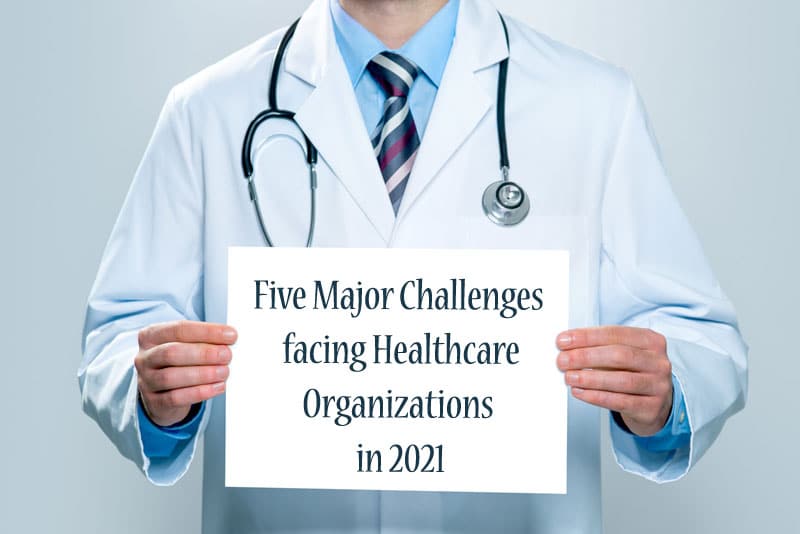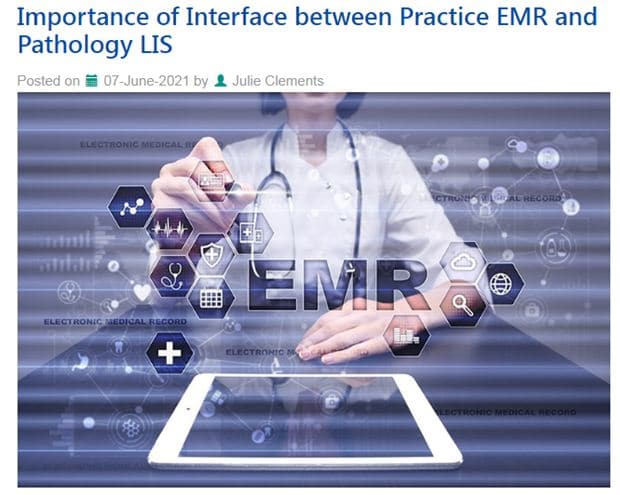
Words can hardly describe just how challenging the year 2020 was for the healthcare industry. The COVID-19 pandemic has had a significant effect on healthcare organizations including both large and small physician practices, and introduced a lot of uncertainty about the future. Our medical transcription company takes a look at the major challenges that industry experts say physicians will face in 2021 and strategies to address them.
- EHR Documentation: In several survey and studies covering specialties, physicians reported filling out forms and other administrative tasks as the major problem, according to Medical Economics. Close to 90% of practices have implemented electronic health records (EHRs), but digitizing patient information has increased physicians’ data entry burden. Not cut out for such paperwork, physicians complain about too much time in front of the computer. This has resulted in high burnout rates, especially among primary care physicians (PCPs). EHR documentation tasks have also taken time away from patient care. A study in the Annals of Family Medicine found that PCPs spend nearly two hours on EHR tasks for every one hour of direct patient care. Rather than saving time, EHRs have led to physicians doing EHR-related tasks beyond normal office hours, resulting in an average of six hours per day spent on the EHR. As these challenges will persist in 2021, physicians can consider outsourcing medical transcription to ensure timely and accurate EHR documentation. A 2018 study in JAMA Internal Medicine noted that scribe support can reduce paperwork and other administrative burdens, and significantly reduce EHR documentation time and lead to “significant improvements in productivity and job satisfaction.”
- Prior Authorizations: The paperwork involved in prior authorizations is another challenge that physicians continue to struggle with. The number of treatments and medications requiring prior authorizations from payers is on the rise, causing administrative headaches for practices and their staffs. Up to 86% of respondents in a 2020 American Medical Association survey reported the administrative burden of prior authorizations as being “high or extremely high.” Likewise, a Medical Economics Physician Report found that physicians and their staff spent an average of 16 hours per week of practice time on prior authorizations. In 2021, PWC’s Health Research Institute expects providers to invest in advanced strategies to deal with prior auth.
- Streamlining Care Delivery: The pandemic drove an explosion telemedicine with physicians meeting patients where they were. A new annual report on PwC’s Health Research Institute survey noted that the deadly pandemic thrust patients, healthcare providers, and payers onto virtual platforms and other digital technologies that many had earlier approached with caution. In the public health emergency, some virtual care was provided on nontraditional mobile platforms, on personal phones, through texts and through messaging platforms used for personal interactions. The report noted that in 2021, “the industry will work to determine which virtual visits make the most sense, and where and how they should take place.” The experiences with virtual care have provided valuable insights and organizations can now find ways to balance virtual and in-person care delivery to optimize the patient experience, reimbursement and clinical research as well as to navigate vaccine delivery (www.healthcareitnews.com).
- Cybersecurity: Cybersecurity has long been a concern for healthcare organizations. With the widespread adoption of digital technologies and virtual care during the pandemic, it has become an even more serious concern. There have been reports of several COVID-19 fraud schemes, phishing attacks, and related cyber threats designed to target natural vulnerabilities. the Department of Health and Human Services (HSS) saw a nearly 50% increase in the number of health care-related cybersecurity breaches in the first half of 2020, with 132 reported incidents compromising network servers, desktop and laptop computers, email and electronic medical record (EMR) systems. With the increased use of virtual care and online healthcare options in 2021, organizations will need to focus on safeguarding process and patient information from cyberattacks. In addition to increasing investment in modern IT infrastructure with effective patch management and malware protection, healthcare organizations should ensure that staff are educated about common cyberattack tactics. Staff will need to be also educated about the importance of using strong passwords, refraining from unknown emails and links, and enabling of firewall protection at work and home. Choosing a HIPAA compliant medical transcription company is another important step to keep patient records safe.
- Hiring and Retaining Clinical Staff: The uncertainty and increased scrutiny created by the COVID-19 pandemic is expected to make hiring and retaining clinical staff more challenging, according to a Medical Economics survey. Up to 35% of PCPs said that hiring new staff is a major obstacle to their practice. To deal with this, practice leaders can implement attractive schemes such as rewarding hard work, boosting the total compensation package, bonuses for staff members who achieve productivity goals, growth opportunities through training, flexible hours, and more vacation time. Employing millennial physicians can also help as they tend to focus on fulfillment of purpose, developing meaningful relationships with patients and spending more time with them, and doing what it takes to improve health care outcomes (www.medicaleconomics.com).
As healthcare providers focus on improving practice management, dealing with administrative burdens and improving the patient experience in a more virtual world, they can rely on medical transcription services to ensure high quality EHR documentation that meets industry standards.


